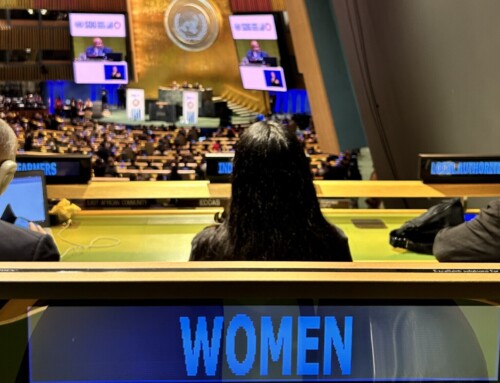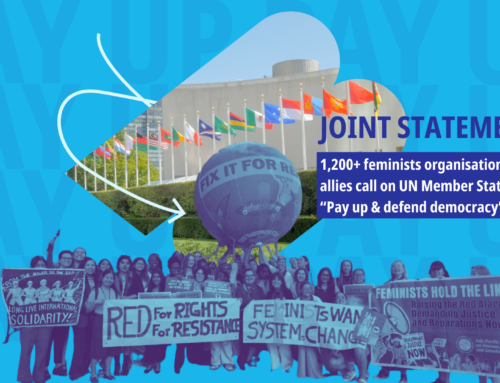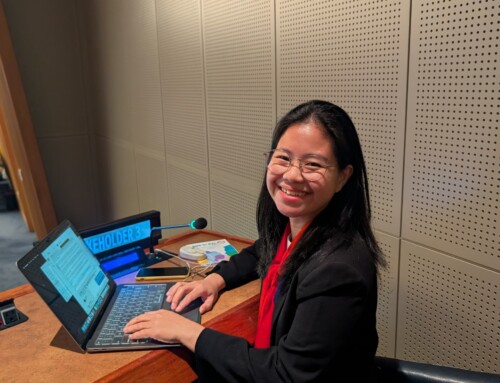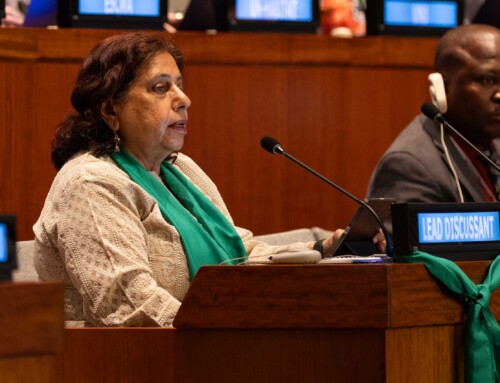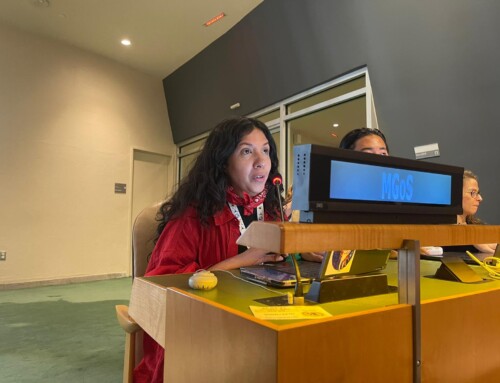2025 High-Level Political Forum on Sustainable Development and High-Level Segment of ECOSOC
Tuesday 15 July 2025: (CR 4) 10 AM – 1 PM
Statement by Lead Discussant – Fer Ghanaa Ansari during the session on SDG 5 (gender equality)
I’m delivering this statement on behalf of the Women’s Major Group. Ten years into the 2030 Agenda, the promise of leaving no one behind rings hollow for millions of women and girls – this reflects what the panelists have already stated.
The Ministerial Declaration as it stands includes elements that weaken existing commitments on SDG 5. Without revisions to strengthen these aspects of the Ministerial Declaration and confirm existing commitments to gender equality, the Women’s Major Group and feminists across the world will be unable to support the current text. We urge all Member States committed to gender equality to take this position.
As a global movement working for equality in family laws and practices, Musawah asserts that we cannot achieve sustainable development without addressing the root causes of gender inequality.
Across the world, discriminatory laws continue to restrict women’s and girls’ rights in marriage, inheritance, mobility, custody, and nationality. Harmful practices such as child, early and forced marriage, dowry, and female genital mutilation persist. These discriminatory laws and practices have impacted the lives of countless women, including myself. These are often justified under the guise of freedom of religion or belief (FORB). Let us be clear – Freedom of Religion or Belief cannot be invoked to justify discrimination. States have a duty to ensure that all laws align with gender equality and human rights obligations.
This is not just theoretical. Family laws in my country have impacted me directly. I’ve lived under legal systems where interpretations of religion shape public policy in ways that directly affect my rights. But if religion is used to inform public law affecting women, then women like me also have the right to shape those interpretations. We are not just subjects of these systems. We are agents of change, and we must be included by States in partnerships as part of the solution.
The language on families in the Ministerial Declaration must reflect that the human rights of individual family members must be given primary importance, and it must recognize that families exist in many different forms, including families with single mothers, whose rights must be ensured.
Women’s economic disempowerment is deeply tied to legal and cultural structures. Financial dependence on male partners, unpaid care burdens, and dowry practices reinforce gendered power imbalances. Without addressing these realities, we cannot build just, inclusive societies. Since 1970, over 600 million women have gained access to economic opportunities through family law reforms.
The shrinking of civic space and chronic underfunding of feminist movements is also alarming. A 2025 UN Women survey found that 90% of women’s rights and women-led organizations face financial strain, with half at risk of shutting down within six months. These are the very groups driving progress, yet they are systematically under-resourced.
We call on States and the UN system to:
-
Repeal discriminatory laws while actively working to eliminate harmful gender stereotypes and social norms, as well as all forms of gender-based violence, including technology facilitated violence;
-
Remove barriers to economic empowerment and recognize women’s contributions through unpaid care work.
-
Guarantee core, long-term, direct, accessible, and flexible funding for grassroots feminist and women’s rights organizations;
-
Facilitate meaningful and sustained participation of women and girls in policymaking and budgeting;
-
Ensure that economic, climate, and foreign policies are coherent, interdisciplinary, rights-based, and gender-responsive.
As the UN Women Executive Director stated, gender equality must be embedded in all policy areas and backed by political will. Above all, political will is essential. We do not lack solutions, but we often lack the courage and commitment to act on them. Reform is not only possible, it is necessary.
Gender equality is not a siloed goal, as has been stated by the panelists today. It is central to justice, peace, and sustainable development.
Thank you.
>> Download statement: HLPF Statement Lead Discussant SDG 5

